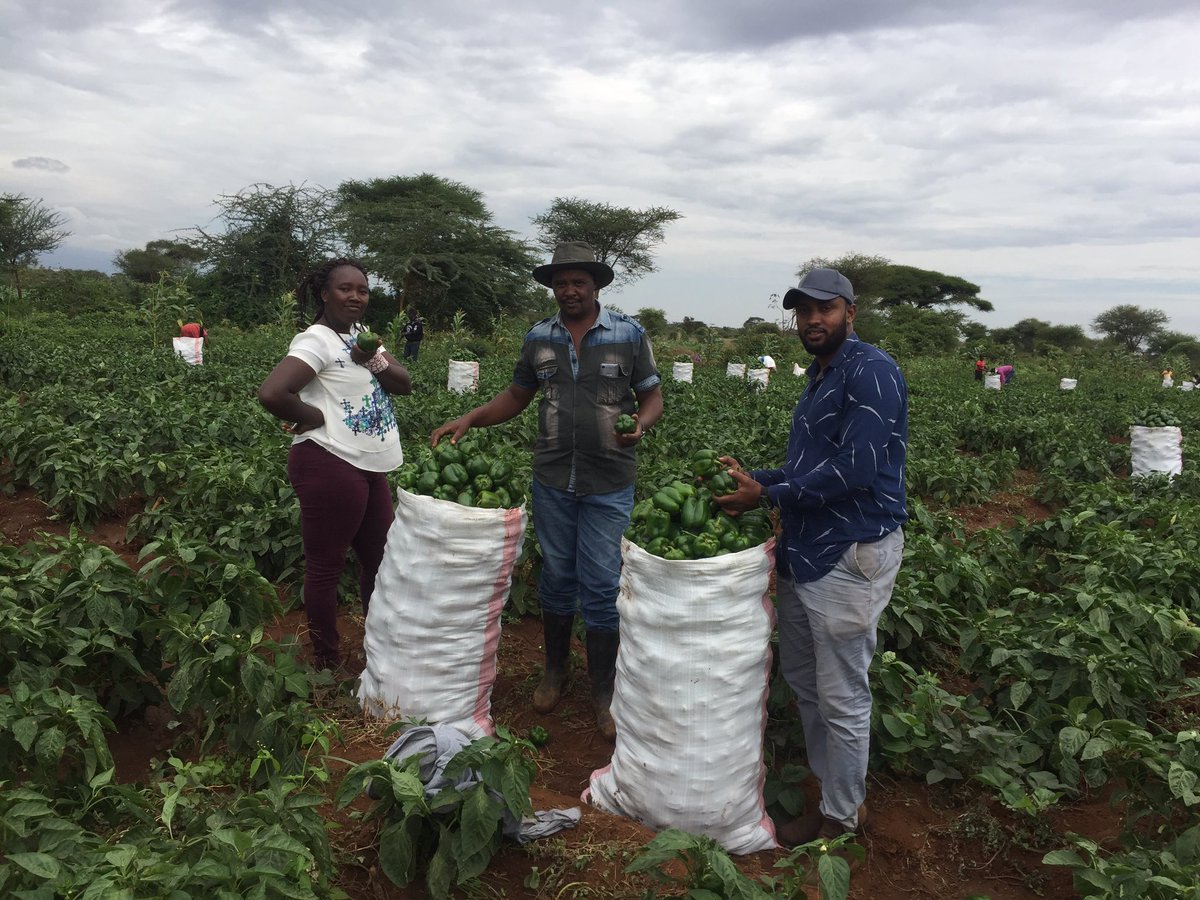Asmin Maslah, 31, an irrigation engineer has ventured into short season crops farming thanks to a government sponsored trip to Israel that equipped him with practical skills in crops production.
Maslah grows tomatoes and capsicum, two crops that mature in three to four months ready for harvesting and subsequent sale in the market.
The farmer is taking advantage of high demand of horticultural crops in both the local and international markets.
According to the Ministry of Agriculture, horticulture is ranked as the fastest growing sub-sector in the country. The Economic Survey 2019 report reveals that earnings from exports of horticulture produce increased by 33.3 per cent from Sh115.3bn in 2017 to Sh153.7bn in 2018. In this, the volume of horticulture exports increased by 6.1 per cent to 322,600 tonnes in 2018.
“In 2016 I was lucky to secure government sponsored training in Israel for a period of two and half years where I learnt all the concepts of crop production from planting to harvesting, the exercise made me change my mindset towards agriculture from theory to practical,” said Maslah.
From 2016 January to May of the same year, Maslah was working as an irrigation engineer at the Galana Kulalu Irrigation Scheme, a project that has now collapsed after an Israeli firm that was contracted to do the work left in February 2019.
“After coming back from Israel, Invested Sh600,000 drawn from my savings towards my farming venture in Loitokitok, Kajiado South,” said Maslah.
From the cash, he leased 71/2 acres of land at Sh10,000 each, bought 125g of hybrid Asila F1 tomato seeds at Sh75,000 and bell pepper seeds (capsicum). He also bought seven bags of DAP at Sh3200 each and seven bags of CAN at Sh2300 each.
He grew tomatoes on a five acre piece of land and bell pepper on the remaining 21/2 acres.
Related content
High yielding and fast maturing Giant Israel pumpkin variety earns up to Sh1,000 a fruit
Pineapple farmers to earn 15 times more by exporting produce to Israel
Government to sponsor 118 fresh agriculture graduates to undertake internship in Israel

Asmin Maslah (left) harvesting bell pepper at his farm in Loitokitok, Kajiado County.
“I planted tomatoes in a two week interval period so as to maximize on the sales in the market by ensuring that not all the produce matures at the same time, that way I will minimize on losses” he said.
Since he planted the crops in January during the dry season he has channeled water for irrigation purposes to his farm from a nearby stream.
Maslah’s crops are now ready for harvesting. In this, he is picking at least 10 crates of tomatoes and 120 bags of pepper weekly.
“I sell the pepper at Sh700 per bag and tomatoes at between Sh4,500 to Sh4,700 in Kitengela, Mombasa and Nairobi,” said Maslah.
He has employed five permanent staff and often engages up to 10 casuals when harvesting.
One of the challenges he faces is that there is no standardized box for selling tomatoes in the market and as such buyers sometimes control the prices using their own boxes.
“I urge the government to come up with a standardized way of selling farmers’ produce, this way we will reap more returns,” he said.
Asmin can be reached on +254 711 955500.
















Comments powered by CComment